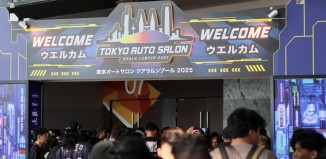FedEx Singapore Rolls Out Custom Mercedes-Benz eVito Vans As Part Of Sustainability Push
FedEx Express Corporation has introduced 31 electric Mercedes-Benz eVito 112 panel vans to its fleet in Singapore, marking a significant milestone in the company’s sustainability journey. Singapore is the first market in the FedEx Asia Pacific network to deploy these custom-built EVs, which will support parcel pickup and delivery operations across the country.
The eVito van has a 923 kg load capacity and an estimated range of up to 321 kilometers per full charge. By replacing 31 diesel-powered Vito 114 CDI vans, these EVs are expected to help FedEx reduce annual tailpipe emissions by approximately 148 metric tons. This initiative aligns with FedEx’s global goal of transitioning to 100% electric vehicle purchases for last-mile deliveries by 2030. FedEx Singapore is already replacing all its end-of-life vehicles used for parcel pickup and delivery with EVs to achieve zero-tailpipe emissions for last-mile parcel delivery operations as per its global initiative.

Kawal Preet, President of FedEx Asia Pacific, stated, “With the introduction of these electric vehicles, we are taking meaningful steps to lower greenhouse gas emissions while improving our efficiency, directly supporting Singapore’s bold sustainability initiatives. This is an important milestone on our path to achieving carbon-neutral operations by 2040, as we work to build a cleaner and more efficient logistics network that promotes sustainable growth throughout the Asia Pacific region.”
To optimise its EV fleet in Singapore, FedEx is employing AI-powered Stops Sequencing tool. This system dynamically plans delivery routes based on real-time data based on package volume and customer requests, helping to reduce daily mileage, fuel consumption, and carbon emissions.
FedEx is also implementing renewable energy solutions to complement its vehicle electrification efforts. By January 2025, the South Pacific Regional Hub in Singapore will harness solar energy to meet over half its electricity demand, providing clean energy to charge the EV fleet. These steps support the Singapore Green Plan 2030, which emphasises carbon emissions reduction and sustainability.
The company’s broader sustainability efforts across the Asia Pacific region include the deployment of electric vehicles in markets such as China, Japan, New Zealand, Malaysia, Taiwan and Thailand. For example, electric tricycles were introduced in Taiwan for last-mile deliveries in urban areas, while electric trucks and vans are in use in Japan and Thailand.
Earlier this year, FedEx completed its first EV-powered cross-border delivery between Malaysia and Singapore, earning recognition from the Malaysian Book of Records. Such initiatives demonstrate the company’s commitment to reducing emissions for both urban and long-distance logistics. 
In addition to electrifying its fleet, FedEx has introduced FedEx Sustainability Insights, a cloud-based carbon emissions reporting tool. This service provides customers with historical emissions data for eligible shipments, enabling them to make informed decisions to reduce their environmental impact.
Through these initiatives, FedEx continues to reinforce its role as a leader in sustainable logistics, working toward its goal of carbon-neutral operations by 2040.


























